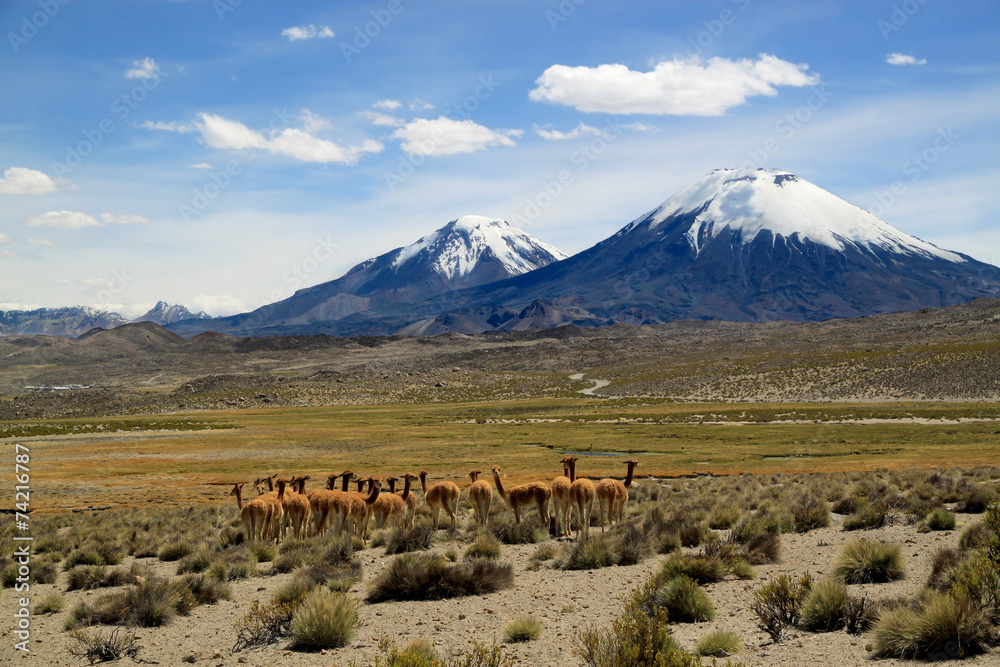Spain: A Captivating Destination of Rich History and Vibrant Culture
Spain, a country drenched in rich history and vibrant culture, is a captivating destination that offers a remarkable blend of ancient traditions and modern wonders. Spain has a long history that includes influences from numerous civilizations, such as the Romans, Moors, and Visigoths.
Spain is neighbored by Portugal, France, Andorra, Morocco, and Gibraltar (a British overseas territory). The country boasts a thriving economy that offers a high standard of living to its residents and is considered one of the world’s major economies. Tourism, manufacturing, finance, and renewable energy sectors contribute significantly to Spain’s economic growth.
Whether it’s the enchanting historical sites, the thriving economy, the captivating lifestyle, or the delicious cuisine, Spain offers a myriad of reasons to entice individuals seeking an extraordinary place to call home.
Visit, Extended Stay, & Relocating to Spain
Spain is part of the Schengen Agreement, which stipulates that a person holding a US passport can enter and stay in Spain for up to 3 months, without a visa. The trip may be for sightseeing or business, as long as the subject does not overstay. Other requirements must be considered, as stated below:
- The validity of the passport must be at least 3 months beyond the planned stay.
- Proof of onward travel or return must be provided; this may be round-trip airline tickets, etc.
- Sufficient funds to support the stay, travel, and other requirements.
- The subject must have travel insurance coverage for emergencies and medical expenses.
- Proof of accommodation; hotel reservations, a letter of acknowledgment from the local if the residence is taken at a local home.
Extended Stay Visas Over 30 Days
Staying in Spain for more than 3 months will require a D-Visa, also known as the Spanish Long-Term Visa. The regular Spain Schengen visa prohibits overstays (more than 90 days), in any case whatsoever. The applicant must acquire a D-Visa, which has nine (09) categories. Each category has a different validity period depending on the purpose and nature of the stay.
- Student Visa:
Obtaining admittance into any of the educational institutes in Spain requires a student visa. An application can be submitted online along with the required documents; admission slip, funds details, accommodation, enrollment details, etc. The validity of the visa is for the period of education. In case the student fails to obtain the degree in the allotted time, a separate application has to be moved for further stay and the same must be endorsed by the concerned institution. - Work Visa:
A work visa requires due diligence from the applicant as well as the employer. By applying for a job or other suitable occupation in Spain, the applicant starts the process. Once accepted, the employer moves the application to the concerned departments requesting a work permit for the applicant. Upon successful permit, the applicant applies for a work visa based on the permit. The validity is for the period of employment with the primary employer; in case of a switch, the employer must inform the concerned department and obtain a new work visa. - Family Visa: Immediate family members of a Spanish national or resident can be sponsored to obtain a family visa in Spain. Sufficient proof must be provided to establish the relationship with the family members being sponsored, this includes birth certificate, marriage certificate, adoption documents, etc. Furthermore, financial means to support the sponsored members must also be provided.
- Retiree Visa:
A retiree visa is aimed at people who can financially support themselves and their dependents in Spain. These are mostly people on stable pensions or retirement funds over 50 years of age planning to live a laid-back leisurely life. Besides having sufficient financial means, other requirements include health insurance coverage, a criminal record certifying that the applicant has no criminal record or outstanding investigations in the home country, a medical certificate, etc.
- Au Pair Visa:
An Au Pair visa is awarded to those individuals who intend to serve a Spanish family or legal resident with domestic chores, or housework; such as cleaning, laundry, chauffeuring, etc. It is similar to a work visa but differs in that the financial responsibility is assumed by the Spanish family. It is important to comply with all the requirements of the Au Pair program, some of which are below: - Participate in the approved Spanish Au Pair Program only and it is advised to engage a registered agency for placement.
- The applicant must be between 17 and 30 years of age and must have completed secondary education.
- An acceptable level of Spanish language proficiency is required to qualify.
- The host family must take responsibility for the applicant’s accommodation, meals, stipend, health, etc.
- Must have all the required documents such as a valid passport, Au Pair placement agreement, duly filled visa application provided by the Au Pair agency, etc.
- Golden Visa:
Spain started offering the Golden Visa in 2013. This visa is officially known as the ‘Ley de Emprendedores’ or the law of entrepreneurs and is aimed at wealthy folk who can buy their way in through investment. The purpose is to bring in foreign investment on an individual level without going into state-level agreements. The investment can be made in real estate, government bonds, bank deposits, or any other business activity that creates employment. The volume of investment varies depending on the sector or industry, here are the investment requirements for some popular sectors of the economy: - Real Estate: $500,000
- Business & Trade: $10,00,000
- Government Bonds: $20,00,000
- Band Deposits: 10,00,000 The salient benefits of a Golden visa are as under:
- Fast-track pathway to obtaining residency for family members including children, spouse, dependents, and other immediate family members.
- Visa-free travel to any Schengen state.
- Indulge in any permissible business.
- Access to healthcare care and education.
- Fast-track pathway to citizenship or permanent residency.
- Entrepreneurial Visa:
Highly skilled individuals, IT experts, researchers, etc. can apply for an entrepreneurial visa to establish a startup in Spain. Spain has a rapidly growing startup ecosystem specifically in the field of IT, innovative sciences, and telecommunication. Some of the requirements to qualify for this visa are: - Business plan.
- Investment.
- Startups must have the potential to create jobs.
- Clean criminal record.
- Legal compliance.
- Must follow the prescribed application process.
- Working holiday visa: US citizens who wish to travel to Spain and pay for the trip while at it can apply for the working holiday visa. During the peak tourist seasons such as summer, Christmas, New Year’s Eve, etc., there is a prevailing shortage of guides, translators, spot photographers, concierges, etc. Obtaining one such occupation can be financially beneficial as well as an amazing learning experience.
- Non-Lucrative Visa:
A non-lucrative visa allows US citizens of any age to reside in Spain for an indefinite period provided they can financially support an adequate subsistence. This may not be confused with a retiree visa as the retiree visa essentially requires a certain age, a stable pension from a legitimate source, and the freedom to work or indulge in lucrative activities. The applicant of a non-lucrative visa must have enough funds to support his/her dependents in Spain and is not at liberty to engage in any lucrative enterprise.
Things to Consider Before Relocating to Spain
Now that we have covered the pathways that lead to long stays and permanent residency in Spain, it is time to explore other facets of livelihood in the country.
Education
If you are accompanied by school-going children, the most critical consideration is education. A very welcoming feature of the Spanish education system is that it offers hundreds of high-quality bilingual schools across the country. While these schools strictly follow the Spanish curriculum, they also provide English support. These schools provide an excellent opportunity to learn Spanish culture, language, and history while maintaining proficiency in the English language.
Additionally, the International School System offers an international curriculum that is similar to the one in the United States. Applicants who are not sure of their duration of stay in Spain can opt for these schools, as when the kids return to their homeland, they will be prepared to reassimilate into their culture.
Lastly, the public school system is also a viable option for US citizens who are on a tight budget and do not wish to spend heftily on private schooling. These schools impart quality education and follow a national curriculum where science, general knowledge, history, and other important subjects are given emphasis.
Here is a list of some of the schools popular among American expatriates:
- American School of Madrid
- The British School of Barcelona
- International School of Barcelona
- Colegio San Patricio
- SEK International School (multiple campuses)
- King’s College (multiple campuses)
Healthcare
Spain’s healthcare system is called the Sistema Nacional de Salud (SNS), Under this system, citizens and legal residents are provided with emergency medical care, primary to tertiary healthcare, and inpatient facilities. Many US citizens also opt for private insurance coverage to ensure that when needed, medical care would be accessible and paid for. Private insurance companies in Spain offer conventional as well as tailored packages to their clients at a reasonable annual premium.
Safety, Security & Real Estate
Overall, Spain is a quiet, peaceful, and safe country. Organized crime, though present, is not widespread, but isolated to some suburban areas and outskirts of major cities such as Madrid, Barcelona, etc. Incidents of mugging and other petty theft seldom involved violence, that too may be avoided by being vigilant and a bit smart.
As for the rents and purchase prices of real estate in Spain, the tabulation below may prove to be a helpful place to start your research.
Estimates based on ONE BEDROOM apartment:
| S# | City | Key neighborhoods | Rental | Ownership Price | Key Characteristics |
|---|---|---|---|---|---|
| 1. | Madrid | Sol, Malasana, Chueca, Retiro, Lavapies, Gran Via | $900 – $1,500 | $200k – $400K | The Largest city and historical hub. Bustling city life. |
| 2. | Barcelona | Eixample, Barri Gothic, El Born, Gracia, Barceloneta | $1000 – $1,700 | $150k – $300k | Unique architecture, serene beaches, vibrant city life, culturally rich. |
| 3. | Valencia | Ciutat Vella, Ruzafa, El Cabanyal, Alameda, Malvarrosa | $600 – $1000 | $100 – $250k | Hub of festivals, grand architecture, and traditional lifestyle. |
| 4. | Seville | Santa Cruz, Triana, La Macarena, Nervion, Los Remedios | $600 – $900 | $70k – $120k | Region of Andalusia, famous for flamenco, music, rich culture, and friendly folk. |
| 5. | Bilbao | Casco Viejo, Ensanche, Indautxu, Abando, San Fransico | $800 – $1,200 | $150k – $300k | A modern city, with iconic museums, and splendid cuisines. |
Business Environment & Employment in Spain
Spain qualifies as the 4th largest economy in the Eurozone and the 14th largest in the world. Business enterprises can find a huge consumer base here that has spending power as well as the propensity to consume. In post-COVID-19, business models worldwide have undergone significant changes, giving rise to individuals who no longer require a traditional office, a specific location, or constant monitoring; popularly known as Digital Nomads.
Spain has emerged as a popular destination for digital nomads for several reasons. Apart from offering a wonderful climate, natural beauty, rich & vibrant culture, etc., tax benefits and the earning opportunities here are endless. Additionally, major cities like Barcelona, Seville, Valencia, and Madrid offer solid IT infrastructure, high-speed internet connectivity, and a cosmopolitan atmosphere.
Several big companies have their satellite offices in Spain, and most of them render services to digital nomads who offer the same quality (in most cases), as a specialized company, at a fraction of the cost.
Moreover, the government regulates the business environment by removing bureaucratic red-taping and simplifying administrative procedures about company registration, licenses, permits, etc. It is safe to say that establishing a business in Spain is comparatively easier than in the region. Allowing for more investors to benefit from the strategic location of the country. Almost all types of internationally recognized business structures are available to the investors; such as PLC, LLC, partnership, sole proprietorship, etc.
Similarly, Spain is one of the key importers of apparel and garments (especially denim), machinery, raw materials, chemicals, oil and energy products, food, etc. Investing or establishing an import and distribution business can prove to be commercially lucrative.
The downside of Spain’s economy is its unemployment rate, which currently hovers at 13.26% of the total workforce in the country. This is largely because Spain is a consumer-based economy; rather than production-based. It imports most of the goods sold in the local markets. Secondly, the economy is propelled by the tourism industry, which only tends to create seasonal jobs.
Looking at the numbers, it is safe to suggest that US citizens who plan to secure a job should consider getting into one of many thriving businesses in Spain. Some profitable enterprises can be hospitality, logistics, food and beverages, software house, IT troubleshooting, gas station, etc.







